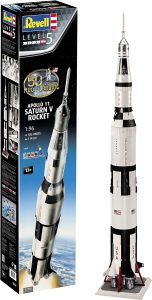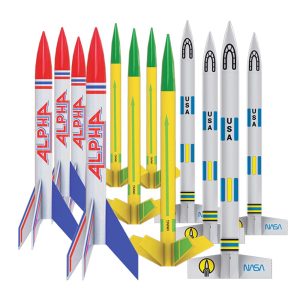In the vibrant world of model rocketry, community, competitions, and education are the lifeblood of innovation and inspiration. Whether you’re a curious beginner eager to join a supportive community, a competitive rocketeer looking to test your skills, or a lifelong learner hungry for knowledge, this guide will show you how to connect, compete, and grow. Explore how participating in competitions, engaging with educational resources, and collaborating with fellow enthusiasts can elevate your rocketry journey to new heights.
Quick Links to Useful Sections
- Building Bridges in the Rocketry World
- The Power of Community: Connecting with Fellow Rocket Enthusiasts
- Competitions: Taking Your Skills to the Next Level
- Education: Learning, Workshops, and Continuous Improvement
- Formal and Informal Learning Opportunities
- Engaging with the Community: Tips for Networking and Collaboration
- Model Rocket Community, Competitions & Education FAQs
- Your Next Launch: Connect, Compete, and Learn
Building Bridges in the Rocketry World
Model rocketry isn’t just about designing and launching rockets, it’s also about building relationships, sharing knowledge, and sparking creativity within a dynamic community. Across the globe, rocketeers are coming together in clubs, online forums, and competitions to exchange ideas, learn from one another, and push the boundaries of what’s possible. In this guide, we’ll explore how community engagement, competitive events, and educational opportunities can transform your rocketry experience.
Whether you're looking to share your latest design, join a friendly competition, or learn new techniques from seasoned experts, the power of community, competitions, and education is your launchpad to continuous improvement and personal growth.
The Power of Community: Connecting with Fellow Rocket Enthusiasts
Being part of a rocketry community means more than just sharing a hobby, it means joining a network of passionate individuals who support and inspire each other. Here are some key benefits of engaging with the rocketry community:
- Knowledge Sharing: Learn from the experiences and experiments of others through forums, blogs, and social media groups.
- Mentorship and Guidance: Connect with experienced rocketeers who can offer advice, troubleshooting tips, and encouragement.
- Collaboration Opportunities: Work together on group projects, local club events, and community workshops to tackle advanced designs and innovative ideas.
- Resource Access: Gain access to exclusive content, instructional videos, and digital resources shared by the community.
- Inspiration: Seeing others’ creative projects and breakthroughs can spark your own innovation and fuel your passion for rocketry.
Joining an active rocketry community is a great way to enhance your skills, broaden your network, and stay updated on the latest trends and technologies.
Looking For The Best Model Rocket Kits? You'll Love These:
Competitions: Taking Your Skills to the Next Level
Competitions in model rocketry provide a thrilling avenue to test your designs, push your limits, and earn recognition within the community. Whether you’re entering local contests or aiming for national championships, competitions offer several unique benefits:
- Benchmarking Your Performance: Compete against fellow enthusiasts to see how your rocket performs under real-world conditions.
- Learning and Innovation: Gain insights from the winning designs and innovative approaches that set top competitors apart.
- Exposure and Recognition: Competitions can help you build a reputation as a skilled rocketeer and open doors to further opportunities in the hobby.
- Motivation: The competitive spirit drives you to refine your designs, optimize performance, and strive for excellence in every launch.
- Networking: Meet like-minded individuals, industry experts, and sponsors who can offer support, advice, and resources to help you advance your skills.
Popular competitions such as those hosted by the National Association of Rocketry (NAR) or the Tripoli Rocketry Association provide structured environments where you can learn, grow, and have fun while pushing your design to its limits.
Education: Learning, Workshops, and Continuous Improvement
The educational aspect of model rocketry is as critical as the technical design. Continuous learning not only enhances your skill set but also keeps you abreast of new technologies and industry trends.
Formal and Informal Learning Opportunities
Educational opportunities in rocketry come in many forms:
- Workshops and Seminars: Attend local or online workshops led by experienced rocketeers to gain hands-on experience and insights into advanced techniques.
- Clubs and Organizations: Join rocketry clubs where regular meetings, launches, and training sessions are held. Organizations like NAR and Tripoli offer structured educational programs and certification courses.
- Online Courses and Tutorials: Take advantage of free and paid courses available on platforms like YouTube, Coursera, and specialized rocketry websites that cover everything from basic principles to advanced engineering.
- Mentorship Programs: Seek out mentors within the community who can provide personalized guidance and help accelerate your learning curve.
Whether you’re looking to deepen your understanding of aerodynamics, propulsion, or recovery systems, education is the key to unlocking your full potential as a rocketeer.
Engaging with the Community: Tips for Networking and Collaboration
Building relationships within the rocketry community can open up a world of opportunities. Here are some tips to maximize your engagement:
- Participate in Online Forums: Join platforms like Reddit, Facebook groups, or specialized rocketry forums to share your projects, ask questions, and offer insights.
- Attend Local Events: Participate in club meetings, launches, and competitions. Face-to-face interactions can lead to lasting connections and collaborations.
- Share Your Knowledge: Contribute tutorials, blog posts, or videos about your projects and experiences. Teaching others is a powerful way to solidify your own understanding.
- Collaborate on Projects: Work with fellow rocketeers on group builds or competitive challenges. Collaboration fosters creativity and can lead to innovative breakthroughs.
- Stay Active on Social Media: Follow and engage with rocketry influencers, manufacturers, and educational platforms on Twitter, Instagram, and YouTube to stay updated on the latest trends.
Active participation not only enriches your own experience but also contributes to the growth and dynamism of the entire rocketry community.
Model Rocket Community, Competitions & Education FAQs
Here are some frequently asked questions to help you navigate the interconnected world of community, competitions, and education in model rocketry:
1. Why is community involvement important in model rocketry?
Community involvement provides access to shared knowledge, resources, and support. It can accelerate learning and inspire innovation through collaboration.
2. What types of competitions are available for model rocketeers?
Competitions range from local club contests to national championships organized by bodies like the National Association of Rocketry and Tripoli Rocketry Association, covering categories such as altitude, duration, and design.
3. How can I get involved in rocketry clubs and organizations?
Look for local rocketry clubs through online searches, community bulletin boards, or social media groups. Many organizations also have websites with membership information and upcoming event details.
4. What educational resources are available for beginners?
Beginners can find a wealth of information through online tutorials, rocketry courses, YouTube channels, and community workshops that cover basic principles and hands-on building techniques.
5. How do competitions help improve my rocketry skills?
Competitions challenge you to optimize your designs, provide benchmarking opportunities against peers, and offer valuable feedback that drives iterative improvements.
6. Can I participate in competitions if I'm a beginner?
Yes, many competitions have categories specifically for beginners. Starting in a friendly, competitive environment can boost your skills and confidence.
7. How important is mentorship in rocketry?
Mentorship can significantly accelerate your learning process by providing personalized guidance, sharing experience, and helping you navigate common challenges.
8. Are there online communities dedicated to model rocketry?
Absolutely. Platforms like Reddit’s r/rocketry, specialized Facebook groups, and dedicated forums offer vibrant spaces for discussion, advice, and sharing projects.
9. What role do educational events and workshops play?
Workshops and educational events offer hands-on experiences and expert instruction, making them invaluable for both beginners and experienced rocketeers seeking to improve their skills.
10. How can I balance competition and community learning?
Engage actively in both, use competitions as a way to test your skills and receive feedback, while also participating in community discussions and workshops to continuously learn and share knowledge.
Your Next Launch: Connect, Compete, and Learn
Whether you’re looking to join a community of passionate rocketeers, test your skills in competitive events, or expand your knowledge through workshops and educational programs, the world of model rocketry offers endless opportunities. Embrace the collective spirit, share your journey, and let every launch propel you toward greater heights of learning and achievement.
The future of rocketry is built on collaboration and continuous improvement, so get involved, compete with confidence, and never stop learning.
Looking For The Best Model Rocket Kits? You'll Love These:
Useful Interruption: Dive deeper into the world of Model Rockets with our most popular sections. If there is anything you think is missing or anything you would love for us to write about, just give us a shout.
- Getting Started & Basics With Model Rockets
- Model Rocket Design, Build & Customization
- Model Rocket Propulsion & Engine Technology
- Model Rocket Launch Techniques & Recovery
- Model Rocket Advanced Rocketry & Innovations
- Model Rocket DIY and Customization
- Model Rocket Equipment Reviews & Digital Tools
- Community, Competitions & Education
- Model Rocket Troubleshooting & FAQs
- Model Rocket Bonus/Seasonal & Niche Topics
A group of model rocket enthusiasts gathered at a field for their weekly launch event. Among them was Dave, a seasoned builder known for pushing the limits of hobby rocketry. This time, he had outdone himself.
“Ladies and gentlemen,” Dave announced, dramatically pulling a cloth off his latest creation, “I present to you: The Kraken!”
The crowd gasped. This wasn’t just a model rocket, it was a monster. The thing stood 8 feet tall, had six clustered engines, and was covered in enough duct tape to qualify as a classified aerospace project.
“Dave,” muttered Steve, the cautious safety officer, “Have you, uh… done the math on this?”
“Math?” Dave scoffed. “I built it in my garage at 3 a.m. with parts from eBay. This is an art piece, Steve.”
The countdown began.
5…
4…
3…
2…
1…
The engines ignited with a BOOM, and The Kraken shot up… kind of. It immediately did a violent barrel roll, narrowly missing the spectators before skyrocketing at an angle that could only be described as “legally questionable.”
The crowd collectively ducked as The Kraken flew straight over the adjacent cornfield, where Old Man Jenkins, the grumpiest farmer in town, was minding his business.
KABOOM!
The rocket disappeared behind the barn. A moment later, a flaming piece of Estes igniter wire landed at Steve’s feet. The silence was deafening.
And then, an unmistakable sound echoed across the field.
Jenkins’ shotgun being cocked.
“DAVE!!!” Steve shouted. “RUN.”
And that was the day Dave invented the first-ever biologically powered rocket booster: pure adrenaline.
To this day, nobody knows where The Kraken landed, but legend has it, it still haunts the skies, terrifying unsuspecting drones and low-flying birds.


